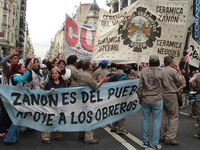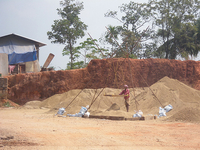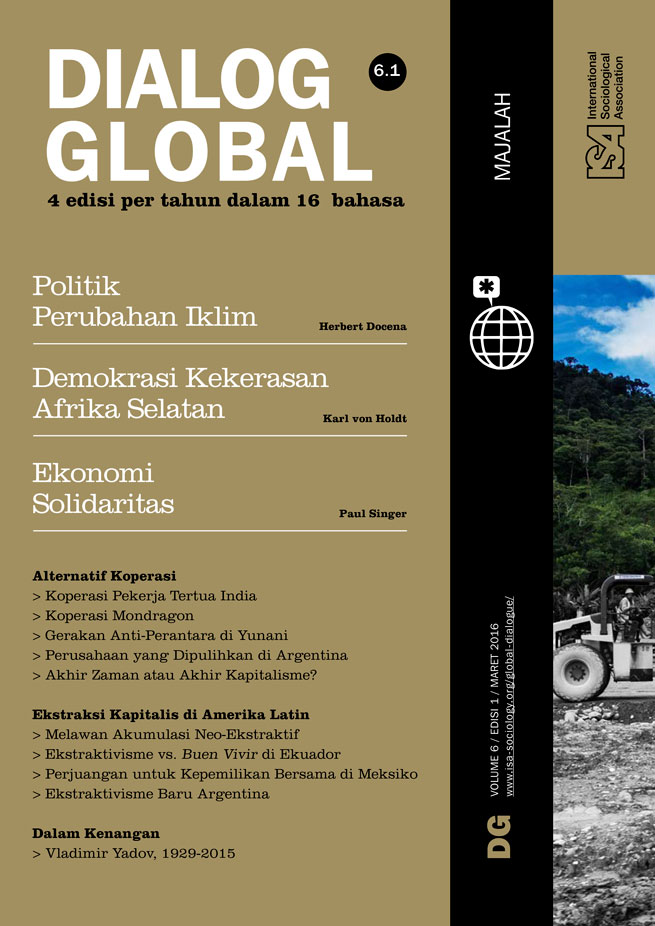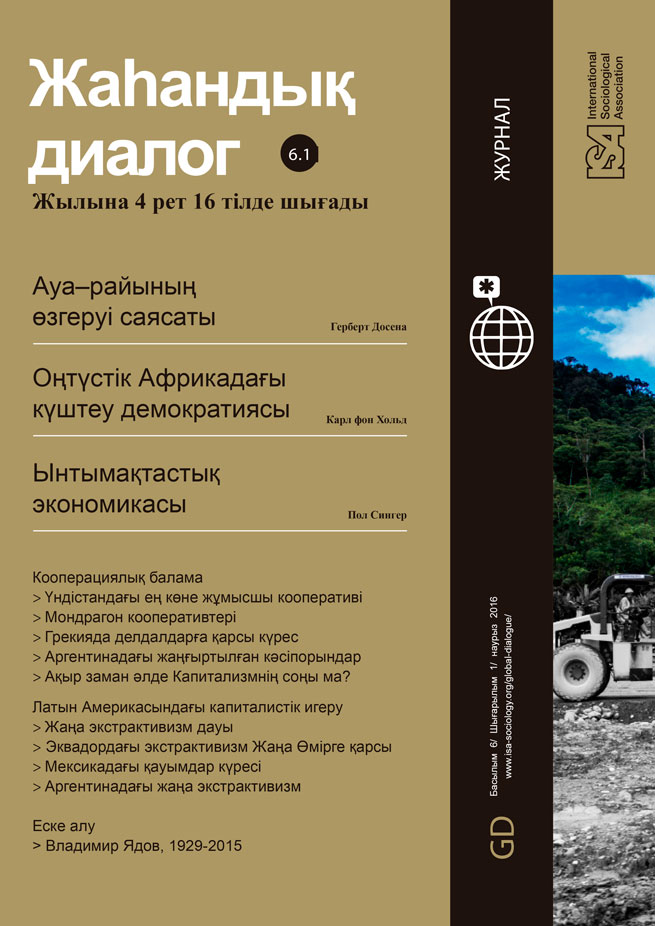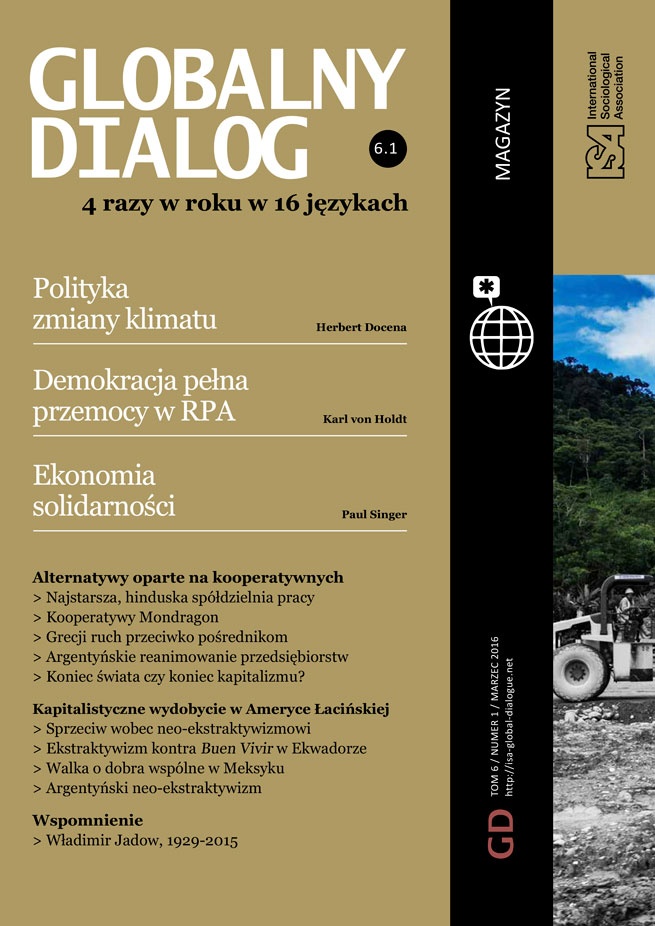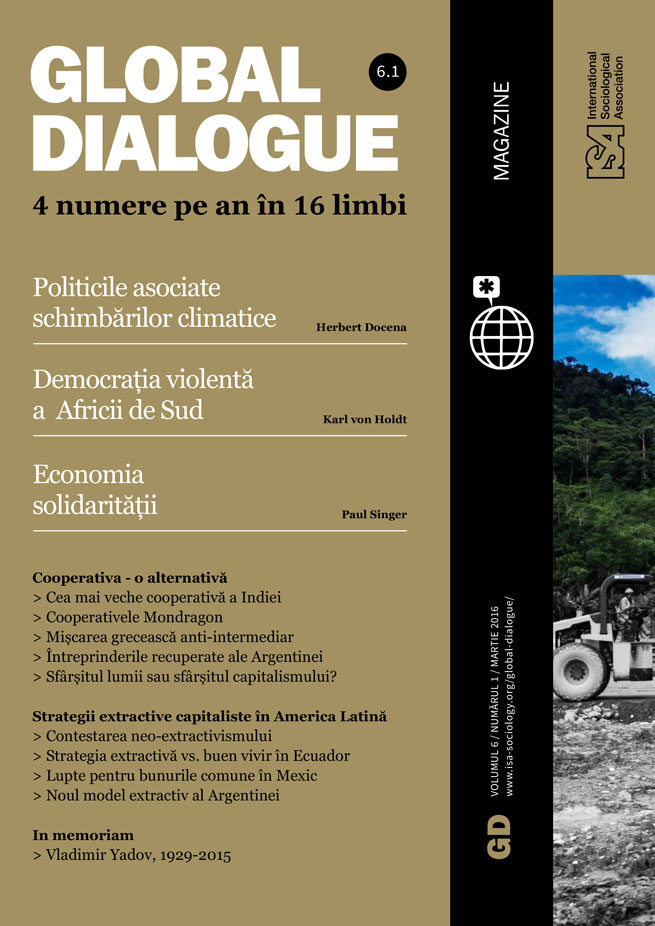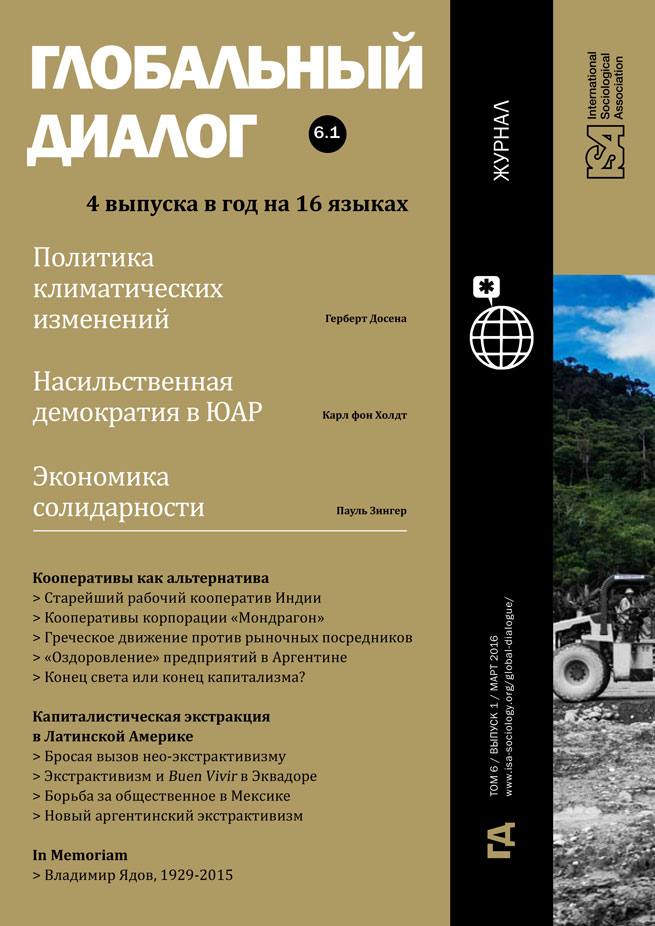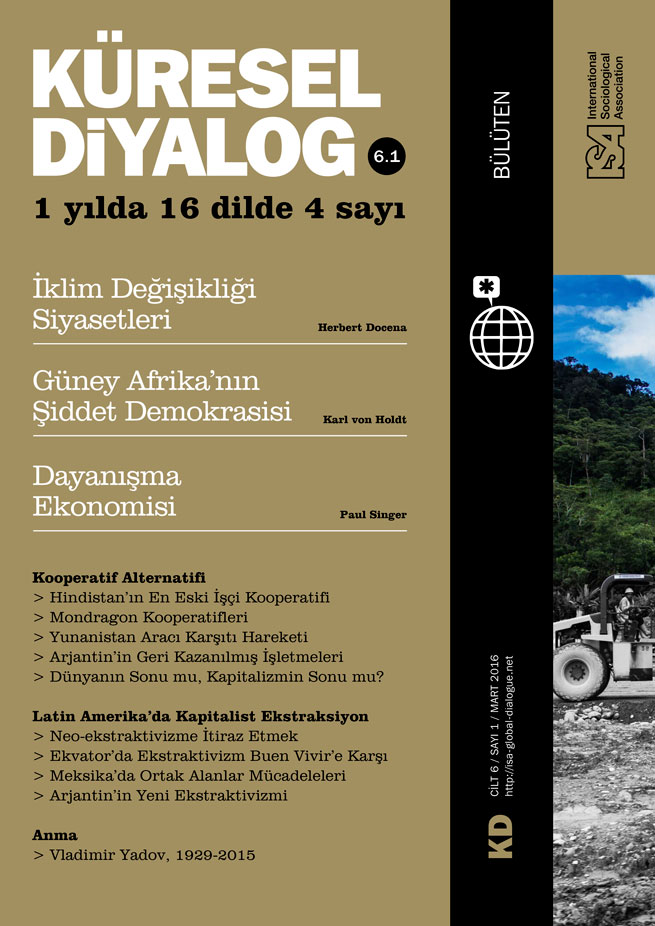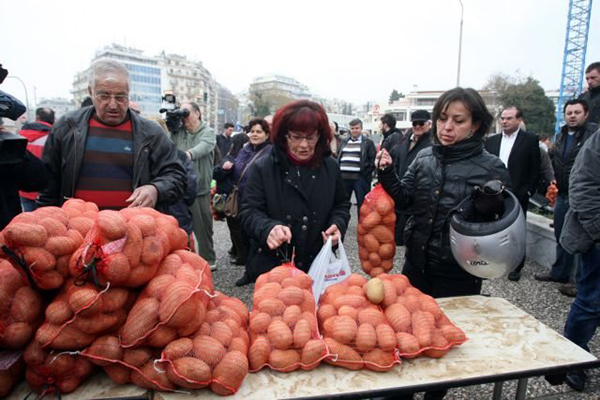Coops have often been a grassroots response to economic crises of the sort Greece has been facing for the past six years, offering a safety net for workers, salvaging jobs in times of transition or recession, from the American depression of the 1930s, to Eastern Europe’s post-socialist predicament in the early 1990s, to the crisis that hit Argentina in 2001. As Greece has faced an ongoing recession – with unemployment rates rising above 27% in 2015 – a series of mobilizations has nurtured a highly-politicized network of informal cooperatives, drawing on the social arrangements of everyday life in crisis as well as a vocal political sphere. Grassroots groups dispersed across Greece expressed a new wave of radicalization by constructing a reciprocity-based social economy, sometimes called a “solidarity” or “alternative” economy.
For the past five years, the development of this informal network of grassroots groups was closely tied to the Greek left’s increasing popularity, and the gradual ascent to power of Syriza (the Coalition of the Radical Left). However, this overlap has now produced a dilemma for activists: with Syriza’s electoral victories, and the party’s recent decision to accept new austerity measures, the activists of the solidarity economy face new challenges.
The movement in action
Configured around mostly informal cooperative groups, these experiments – barter markets and timebanks, as well as cooperatively-organized social welfare provision, such as social clinics or pharmacies – have offered alternatives to austerity. Working-class and lower-middle-class districts in Greece’s cities have experienced vivid examples of informal cooperativization, especially between 2011 and 2014.
In Thessaloniki (Greece’s second biggest city) many residents of the city center and some popular suburbs benefitted from the “anti-middleman” movement. Unpaid participants coordinated grassroots cooperatives to distribute food, helping agricultural producers to sell food directly to consumers, in open, makeshift farmers’ markets. In 2012-13, as many as 80 such groups operated in Greece; in Thessaloniki alone, at the heyday of the movement, and during earlier fieldwork in the latter half of 2013, there were around ten such “flash” markets that took place every Sunday, with thousands attending.
This anti-middleman movement was organized around informal cooperatives that manage the distribution of foodstuff. Urban-based activists organized farmers’ markets in poor and middle-class neighborhoods, squatting in squares, parking lots or parks. These impromptu markets were arranged in order to avoid market middlemen. Eliminating the brokers’ charges made fresh produce affordable. Activists contacted farmers in nearby rural areas, inviting them to markets they set, and liaised with them for long-term collaborations. The activists set up in a regular, if informal, fashion; farmers sold fresh produce for as little as half the usual retail price. These relations were formalized in contracts stipulating that the farmers would not vote Golden Dawn (a neo-Nazi party, currently third in Parliament seats) or support racist policies.
The movement in (relative) hibernation
Today, many local households’ basic needs are served by this informal agrarian distribution. However, after peaking in late 2013, the movement’s scope, practice and even its identity have fluctuated. Several anti-middleman groups are currently dormant, meeting less frequently or abandoning market activities entirely.
The main problem of the anti-middleman movement stems from an unfriendly context. Cooperationists faced police prosecution when they failed to obtain licenses for their squat-markets, and some farmers have faced fines for “illicit squatting in public space” – a legal charge usually activated by the Association of the Open Markets of Thessaloniki, a middleman lobby group. Personal exhaustion has also played a role: many activists were disappointed by the farmers’ reluctance to take a leading role in organizing the markets.
A second problem is more complicated, related to activists’ concern about whether these informal operations could guarantee resilience. Many activists discussed formal cooperativization, but this would have required a progressive political and legal framework.
Of course, such efforts would have been helped by a progressive government. In early January 2015, in the months before Syriza entered government, the movement started to enter a stage of hibernation. Having faced state coercion and unable to fully convince farmers to engage more directly in the movement, activists hoped for more favorable conditions for their “solidarity economy.” Expecting a shift in government, activists withdrew from efforts to strengthen informal cooperatives. Some participants in group assemblies raised concerns about “cooptation,” but most solidarity economy activists expected a very different climate “once the Left leads the state,” as one activist put it. In fact, many group meetings revolved around the idea that “we are doing what the state should be doing,” and a leading activist suggested in an assembly meeting that “the movement could easily turn into a farmers’ mobilization assisted by a social state.” Especially as Syriza members started participating (or “infiltrating” the groups, as one activist told me half-jokingly), there was a clear sense that Syriza would solidify a “new era for the social economy.”
Syriza in Power
Anticipating its election, the party created an umbrella organization meant to strengthen the nodes among groups and between informal groups and the state. This offered some important international publicity for the solidarity economy, echoing the popularity of Syriza itself. But the party’s platform has not targeted the development of the movement on the grassroots level. Instead, we have witnessed a complex situation in which various activists became more engaged with Syriza, while others removed themselves from the movement altogether.
Meanwhile, the food solidarity economy has gradually diminished in both numbers and appeal, although some progressive municipalities have begun to organize their own anti-middleman markets. Most original grassroots groups today remain in a limbo, oscillating between what some activists called “co-optation” and others called “solidification.” Describing this partial transformation of the movement in the embrace of the state, some activists use the popular concept “anathesi”, roughly translated as conferring, and its practice as conferral politics, reflecting the idea that grassroots movements can confer their energy and potential to established politics, thus dampening their activity.
Paradoxically, as the cooperative social economy on the ground has articulated with the progressive politics of a radical left-wing government, Syriza in power has proved an unexpected obstacle to the solidarity economy’s development, a reality that is located in the links between party and informal groups, and, most importantly, in the anticipation that the Left would support the solidarity economy. (Tellingly, the main maxim in January elections was “the hope is coming.”)
Political mobilization, the blood of the solidarity movement, has receded, yet an important footprint of the anti-middleman movement is still visible in the civil and political landscape of Thessaloniki. Social clinics and pharmacies remain active and are relatively formalized, while a cooperative food shop set up by the anti-middleman movement has been very successful. Meanwhile, Syriza’s dismal failure in halting austerity – indeed the party’s introduction of a new bailout and austerity package – has delegitimized the institutional Left in the eyes of many solidarity economy participants, perhaps widening the gap between grassroots groups and the government. In light of the new looming of austerity, the government will not have leeway to craft a legal framework that fully endorses and promotes cooperatives and the solidarity economy. Could this shift revitalize a movement that, in the words of one activist, “sprang out of material necessity and emotional rage”? It remains to be seen whether these new dynamics might reinvigorate the solidarity movement or reshape participants’ uncomfortable relation with left institutional politics.
(This article is based on fieldwork funded by the Wenner-Gren Foundation for anthropological research, Grant Number 8856.)
Theodoros Rakopoulos, University of Bergen, Norway <trakopoulos@gmail.com>

